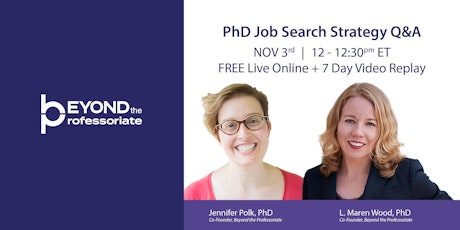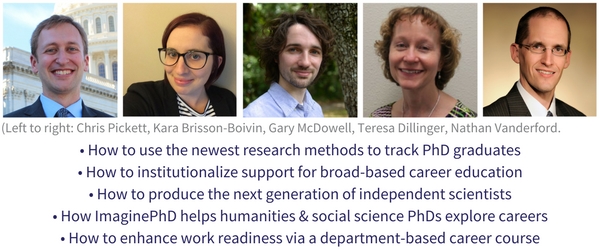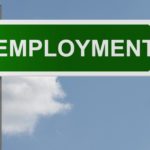By Maren Wood, PhD
University Affairs, October 17, 2017 —
Bringing together individuals and institutions from across North America who are actively working to help smart, creative people move from graduate studies into meaningful work.
In 2011, I left higher education to pursue a non-academic career. I completed my PhD in 2009, and graduated into the heart of the great recession. The academic job market had collapsed, and many of us who were focused on preparing for faculty careers learned that there were simply not enough jobs for all of the talented people.
But what was I going to do with my PhD in history? I had no good ideas and no clear answers. I only ever wanted to be a professor, and the idea of doing something else for a living was terrifying and overwhelming. Like any good academic confronted with a problem I didn’t have an answer to, I started researching, looking for data to help guide me in my career transition. I found there wasn’t much helpful information out there. Having already graduated, I was no longer eligible for career services, which were largely geared towards undergraduates anyway. And, while there was a host of “quit lit” stories on the web, there wasn’t much in the way of concrete, data-supported information on career pathways for history PhDs interested in moving beyond the professoriate.

This piqued my curiosity. Where did PhDs go when they didn’t end up in higher education? I began tracking the career pathways of the alumni from my own department, and then published the results. This rogue project led to a temporary contract with the American Historical Association to help with their tracking project. Following the successful completion of that project, I was hired by the Chronicle of Higher Education to study who landed tenure track jobs in 11 academic disciplines. I also conducted my own research: Last year, I explored the makeup of history and English departments at four-year institutions in Canada. This year, I’m working on a history of the academic job market crisis, managing a team of volunteers to track who lands tenure track jobs in humanities and social science disciplines.
Through the process of re-inventing myself from historian to career educator, entrepreneur, and consultant, I had conversations with people working on similar problems within organizations across North America, from biomedical scientists to English literature scholars. Many of these conversations occurred when I was on university campuses delivering workshops to graduate students. Over the past few years I’ve learned about problems and challenges institutions face, and how they are inventing and testing new programs and initiatives.
Jennifer Polk’s experience is similar to mine. She is learning about challenges and promising programming, mostly one school or department at a time. She was excited to attend the Congress of the Humanities and Social Sciences this past spring, knowing it would give her an opportunity to learn about what was happening in a handful of different fields. This gathering of dozens of humanities and social science association conferences featured several presentations by scholars and practitioners working on issues related to graduate careers. Jen, thanks to a media pass, attended sessions hosted by the Association of Canadian College and University Teachers of English, the Canadian Political Science Association, the Canadian Society for the Study of Higher Education, and the Canadian Sociological Association, without having to pay individual registration fees for each conference. She learned about impressive new initiatives and important research conducted by Canadian scholars.

Despite the fact that institutions and disciplines face similar challenges, there are few opportunities for those actively working on these issues to talk with people outside their discipline or institution. There is even less conversation between institutions in Canada and the United States. As Jen and I considered the purpose and legacy of Beyond the Professoriate, we thought about the importance of bringing together faculty, administrators, graduate students, and other stakeholders who are invested in the work we’re doing. We want to know how people are answering tough questions such as:
- How do we prepare students to work in a variety of career fields?
- What is the value of the PhD?
- How do we track and measure PhD career outcomes?
- What is the role and responsibility of departments, advisers, and institutions in helping graduate students and postdocs launch careers after graduation?
So, in addition to our monthly webinars for graduate students and PhDs in career exploration and transition, we have organized a Research & Innovation series to bring together individuals and institutions from across North America who are actively working to study career pathways, and build innovative programs, to help smart, creative people (with or without the PhD) move from graduate studies into meaningful work beyond the professoriate.
The series launched on October 5. Our first webinar featured Chris Pickett, director of Rescuing Biomedical Research. Dr. Pickett and his organization are a leading force in coordinating efforts across institutions to systematically track, categorize, and report career pathways for biomedical PhDs. You can watch the full video here. We’ll also be publishing a short article authored by Dr. Pickett in this blog space.
On October 19, Kara Brisson-Boivin will talk about the innovative program Carleton University has developed to support graduate career mentors within departments. As a mentor, Dr. Brisson-Boivin helps prepare students for careers inside and beyond academia, leading workshops on the conventions of writing professional documents, networking, and interviewing, and providing individual mentoring to the graduate students currently entering the job market. Dr. Brisson-Boivin will be joined by two students who went through the seminars last year, and we’re thrilled to have the perspective of those organizing, and participating in, this program.
In November, we have three exciting presentations. Teresa Dillinger (University of California, Davis) has been leading the efforts of the Graduate Career Consortium to develop ImaginePhD, which is formally launching later this month. Similar to MyIDP, ImaginePhD is a tool for humanities and social science PhDs to identify, based on their skills and interests, the different types of jobs and industries where they might launch meaningful careers.
Gary McDowell, executive director of the Future of Research, will present research on how he used U.S. Census Bureau data to study the history of the biomedical workforce.
Nathan Vanderford, an assistant professor and assistant dean at the University of Kentucky, will talk about his “Preparing Future Professionals” course, which helps students learn about, and prepare for, careers outside of academia. Designing it led to interesting challenges within the institution – Who pays the tuition? Who gives permission for students to take the course? – and how the graduate school has overcome these challenges.

We’ll continue the series in January, with seven more presentations during the spring, including several featuring researchers, faculty members, and students from Canadian institutions and organizations.
All of these events are free, and replays will be hosted on our website. We’re creating a video resource library for those of us actively working on improving professional development for graduate students and PhDs. This will allow us to connect across disciplines, institutions, and the 49th parallel.
To attend Research & Innovation series webinars, register for free via our website. Past webinars in this series are available to stream on our video page.













